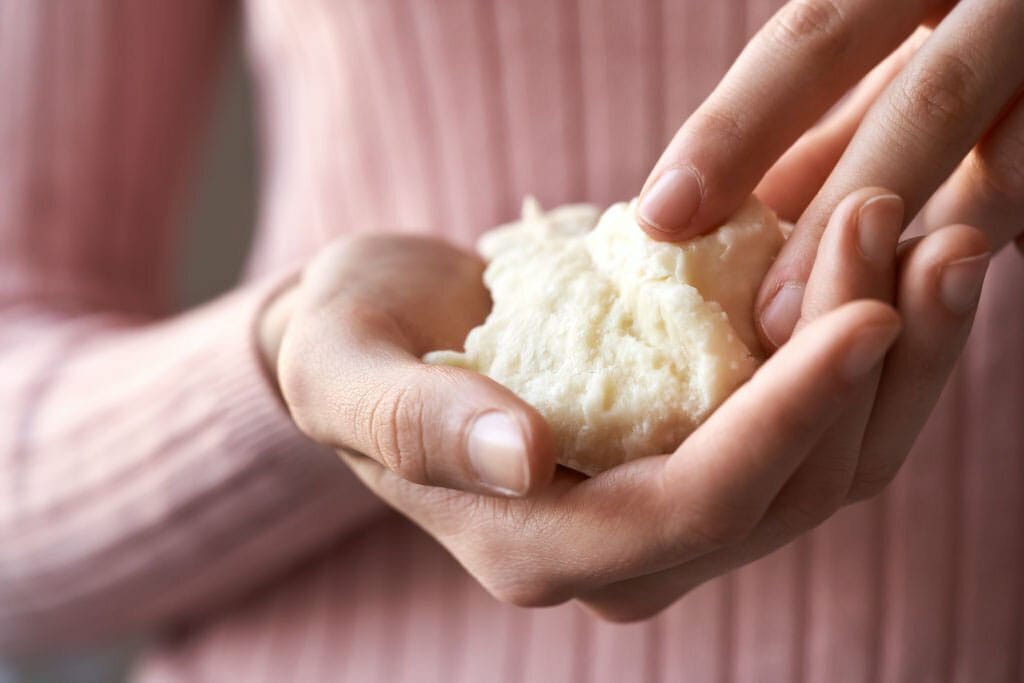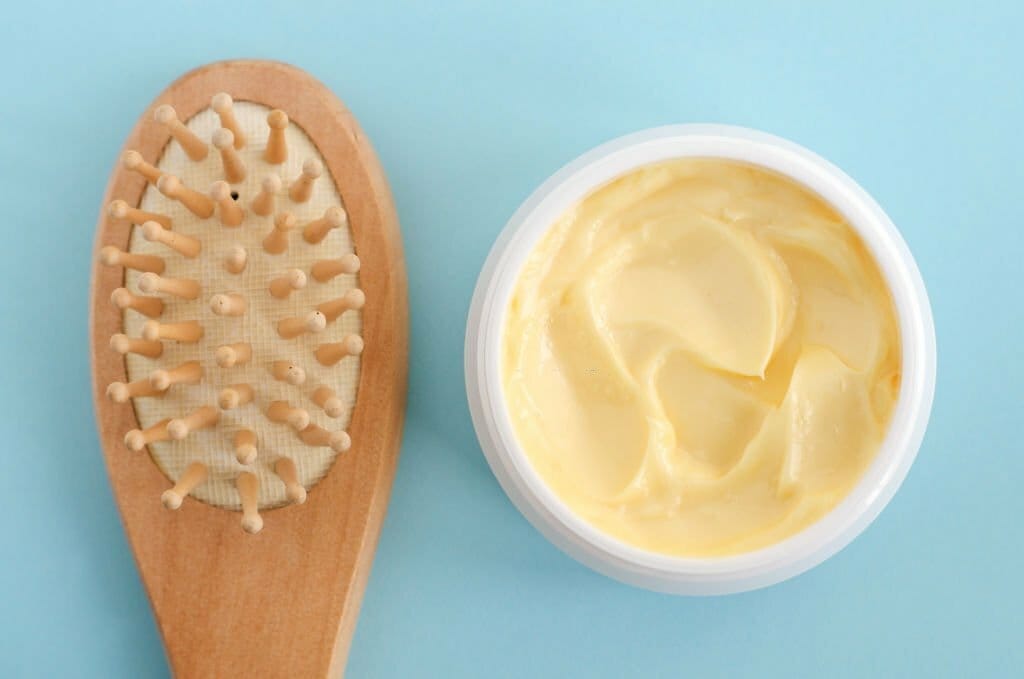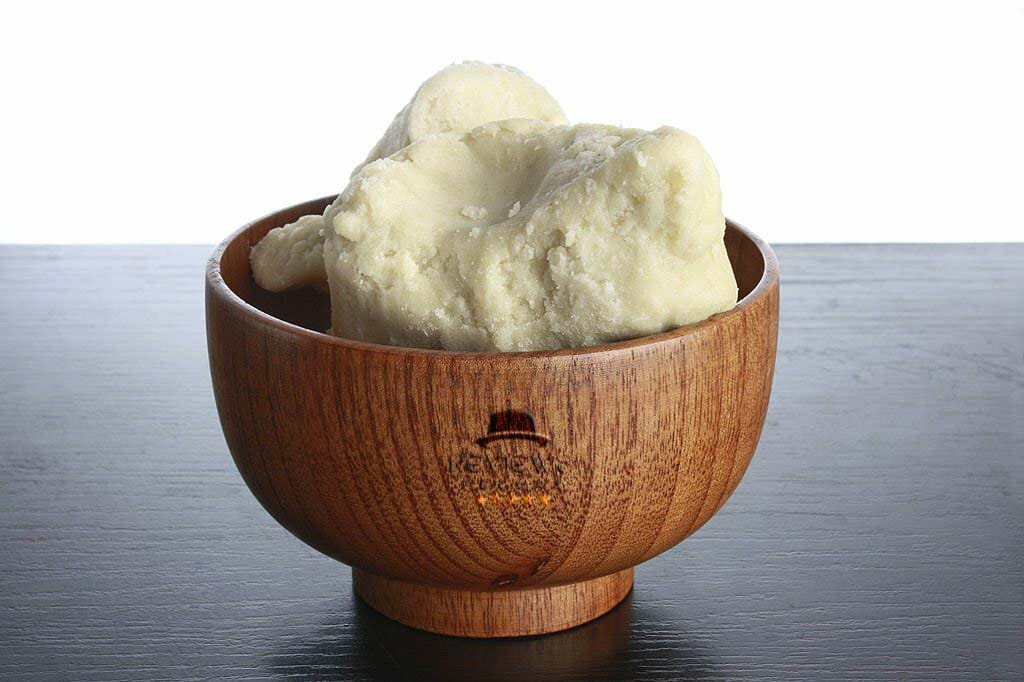This article is reviewed, corrected, and approved by: Julia Weiss CNP| RN | MPH
Just as in the case of most natural emollients originating from plants, we have recently become enamored with African shea butter and all that it is capable of accomplishing when leveraged for skin care settings or used professionally anywhere else. This resilient sapling from the African shea tree embodies an all natural wonder, that has not only worked its way into regimens but worldwide as well. We break down the secrets hidden in this natural formula into our complete guide to African shea butter and all its uses, benefits, sourcing challenges & more.
What is African Shea Butter? Exploring its Origin and Composition
The shea butter utilized in this product is a naturally occurring emollient that is refined from African shea tree (Vitellaria paradoxa) nuts. With a rich historical heritage spanning numerous centuries, its exceptional composition, enriched with vital fatty acids and essential vitamins, contributes to its esteemed reputation for possessing remarkable therapeutic attributes.
Composition of African Shea Butter:
African Shea Butter is composed of various components that work together to provide excellent moisturizing, anti-inflammatory, and antioxidant benefits. All these components and ingredients are perfect for haircare and beauty products.
Varieties of African Shea Butter
Raw Shea Butter
Raw African shea butter, also known as unrefined shea butter, retains its natural state and nutrients. It possesses a distinctive nutty scent and maintains its natural ivory or yellowish color. Its raw form is highly sought after for its organic richness and efficacy in retaining moisture, making it a top choice in organic skincare and hair care.
Refined Butter
Refined African shea butter undergoes a processing method to remove impurities and refine its scent, resulting in a neutral aroma and smoother texture. While some nutrients may be lost during refinement, it is favored in cosmetic products for its consistency and versatility.
African Nilotica Shea Butter
Derived from the Vitellaria Nilotica species, Nilotica shea butter boasts a creamier texture and milder scent compared to its counterparts. Its gentle nature makes it particularly suitable for individuals with sensitive skin or scalp, offering similar benefits as raw and refined shea butter with a unique consistency.
Exploring African Shea Butter Benefits and Uses

- The Benefits of African Shea Butter for Acne
Shea butter provides a highly effective remedy for addressing concerns related to acne. It effectively combats inflammation, reduces redness, and keeps bacteria at bay, all while ensuring that your pores remain unclogged. Consequently, your complexion remains unblemished and devoid of imperfections.
- Relieving Skin Issues with Shea Butter
If you're experiencing itchiness or irritation, shea butter works wonders. It provides a comforting embrace for conditions like eczema or psoriasis. By soothing itchiness, alleviating redness, and offering relief to your skin, shea butter proves to be a true savior.
- Can Shea Butter Be Used As A Sunscreen?
While shea butter does offer some sun protection, it is not sufficient on its own. It can aid in repairing sun-damaged skin and sunspots on skin, but it is crucial to remember to use proper sunscreen for complete protection when exposed to the sun.
- Nourishing Lips with Shea Butter
Bid farewell to dry lips! Shea butter acts as a rescue remedy for chapped lips. The product efficiently provides optimal hydration, effectively warding off any signs of dryness and imparting a velvety texture that imbues your lips with a nourishing sensation of supreme softness and smoothness.
- Shea Butter in Body Care Products
In lotions and soaps, shea butter acts as a superhero for your skin. This product delivers a crucial infusion of hydration, resulting in a velvety, nourished, and deeply satisfied complexion. Incorporating products enriched with shea butter into your skincare routine will undoubtedly leave your skin feeling extraordinary.
Where to Buy Natural Shea Butter (Authentic and African)
For good quality African shea butter, a reliable source can be obtained. Notable health food enterprises, organic stores or selected online producers are good places to start.
If you are just starting, try to find a good brand/supplier that sells top-quality authentic shea butter. Reviewing customer testimonials as well as checking any information provided by the distributor in terms of their accreditation or sourcing can also help determine whether this is a real product.
Pro Tips: How to Use African Shea Butter

How to Apply African Shea Butter on Face for Maximum Benefits:
Clean, damp skin is best for full on face benefits. Take a small amount of shea butter and warm it up by rubbing between your hands to make sure it is softsqueeze. Then gently massage your face with the butter, moving upwards.
Especially to dry-prone or fine line prominent areas Let butter melts all over the skin and wait for 5 - 10 minutes before moving to your own creams or makeup. Use it in morning as well at night for better results.
Incorporating African Shea Butter into Daily Skincare and Haircare Routines:
There are so many creative ways to make shea butter a part of your regular routine. When it comes to hair care, you can use shea butter melted as a mask before shampooing in depth and nourishing your locks.
Furthermore, Additionally, it doubles as a leave-in conditioner by adding more moisture and giving your mane that healthy glow. So, it is virtually impossible to find a problem that African shea butter cannot solve when you consider the wide range of benefits for skin and hair care as well as simply overall health.
It propels a voyage deep into the heart of maximising its dynamism, peeling away layers on this winding navigation maze as we seek to heal skin afflictions, adorn tresses or break-through skincare norms.
The Last Words
In essence, African shea butter emerges as a powerhouse ingredient, offering a spectrum of benefits for skin, hair, and overall well-being. Whether seeking solutions for skin ailments, hair nourishment, or elevating skincare routines, comprehending the properties and applications of African shea butter paves the way to harnessing its full potential.


